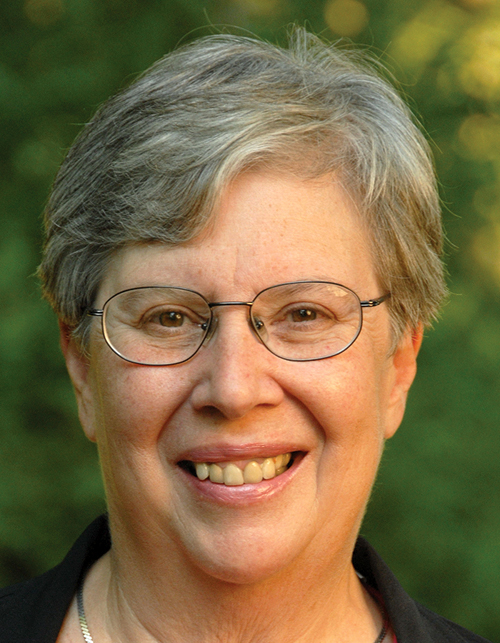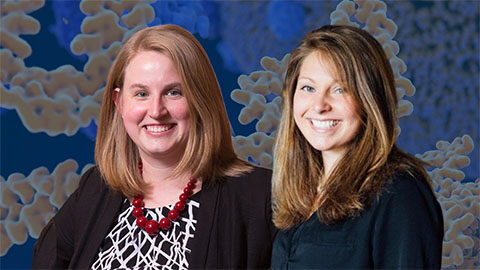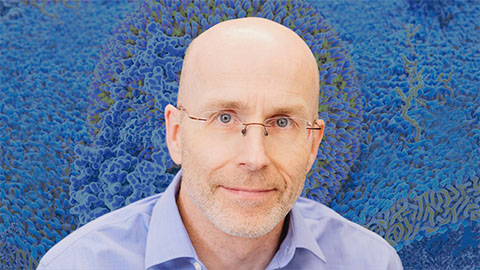Berman recognized for her work removing barriers to data access
Helen Berman has won the 2013 DeLano Award for Computational Biosciences from the American Society for Biochemistry and Molecular Biology. Berman, a professor at Rutgers University and co-founder of the Protein Data Bank, is being honored for her efforts to make data universally available.
 “I am deeply honored to be a recipient of the DeLano award that recognizes the importance of the availability of computational resources for biological research.” –HELEN BERMAN
“I am deeply honored to be a recipient of the DeLano award that recognizes the importance of the availability of computational resources for biological research.” –HELEN BERMAN
“From the earliest point in her career, she worked within the scientific community to set up guidelines to ensure that such universal access would be possible,” explained Ann Stock of Rutgers University in her nomination of Berman. She continued: “Motivating these efforts was her strong conviction that it would be possible to create new knowledge from systematic analyses of data. While this concept seems obvious today, it was visionary when she began to promote the idea in the early 1970s.”
About 25 new structures now are submitted to the PDB each day, and more than 88,000 structures have been made available since it was established in 1971. (Berman, who today directs the Research Collaboratory for Structural Bioinformatics PDB, has contributed 38 of those structures.) Berman also was involved in creating the Nucleic Acid Database of structures. Her contributions to the PDB and databases of the sort have had a profound impact on how we study biology.
Jane Richardson wrote in support of Berman’s nomination for the award, “I think it is incontestable that disappearance of the PDB would leave a larger hole in macromolecular science than the loss of any other single computer-based system and also that Helen is the person who deserves the most credit for that.”
Berman began studying crystallography at the Columbia University College of Physicians and Surgeons during her undergraduate years at Barnard College. Her interest followed her to the University of Pittsburgh, where she worked under the direction of George Alan Jeffrey and received, in a mere three years, her Ph.D. in crystallography in 1967. She stayed on at Pittsburgh for a postdoctoral stint and later moved to the Fox Chase Cancer Center, where she started her own lab and focused for 20 years on nucleic acid crystallography and the interactions between nucleic acids and drugs. In 1989, she joined the faculty at Rutgers and went on to expand her crystallographic program to include the study of collagen and protein-nucleic acid complexes. Berman became director of the PDB in 1998 and in 2003 co-founded the Worldwide PDB organization that now manages the PDB archive.
Education is another facet of Berman’s extraordinary career: She has mentored numerous high-school, undergraduate and graduate students and postdoctoral fellows. Janet Thornton at The European Bioinformatics Institute explained, “Obviously, as a professor, she has been involved in education, but her commitment goes well beyond the normal devotion to duty. Within the PDB she has always devoted considerable energy and funds to ensuring that the PDB is accessible to school children and young undergraduates. Her work has made these complex structures much more accessible to these young people, the scientists of the future.”
Berman will receive her award during the Experimental Biology 2013 conference in Boston, where she will deliver an award lecture. The presentation will take place at 2:55 p.m. April 22 in the Boston Convention and Exhibition Center.
Enjoy reading ASBMB Today?
Become a member to receive the print edition four times a year and the digital edition monthly.
Learn moreGet the latest from ASBMB Today
Enter your email address, and we’ll send you a weekly email with recent articles, interviews and more.
Latest in People
People highlights or most popular articles

Redefining lipid biology from droplets to ferroptosis
James Olzmann will receive the ASBMB Avanti Award in Lipids at the ASBMB Annual Meeting, March 7–10, just outside of Washington, D.C.

Creating change in biochemistry education
Pamela Mertz will receive the ASBMB William C. Rose Award for Exemplary Contributions to Education at the ASBMB Annual Meeting, March 7-10 in Washington, D.C.

Amacher, Pollock named Henry Dreyfus scholars
They were recognized for their outstanding research scholarship and a deep commitment to undergraduate education and each received $75,000 to fund their research.

Trainee mentorship as immortality
Suzanne Barbour will receive the ASBMB Sustained Leadership Award at the ASBMB Annual Meeting, March 7-10 in Washington, D.C.

Life in four dimensions: When biology outpaces the brain
Nobel laureate Eric Betzig will discuss his research on information transfer in biology from proteins to organisms at the 2026 ASBMB Annual Meeting.

Fasting, fat and the molecular switches that keep us alive
Nutritional biochemist and JLR AE Sander Kersten has spent decades uncovering how the body adapts to fasting. His discoveries on lipid metabolism and gene regulation reveal how our ancient survival mechanisms may hold keys to modern metabolic health.

